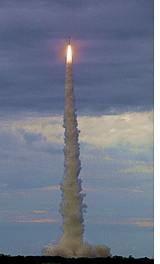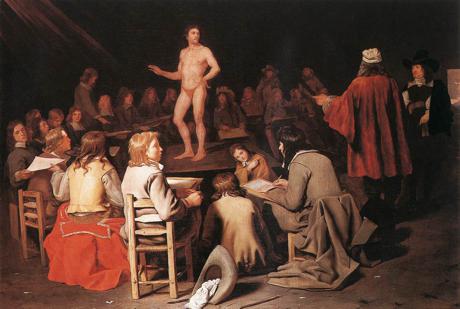or Where I Think Government Should Spend Our Money
Let’s get something straight.
Climate Change is real.
Political Science is fake.
“Aides to the US president-elect, Donald Trump, … unveiled plans to remove the budget for climate change science currently used by NASA and other US federal agencies for projects such as examining Arctic changes, and to spend it instead on space exploration,” the Guardian reported.
“Shoot the messenger?” one correspondent asked. “Trump is cutting NASA’s arctic research because the agency brings inconvenient news.”
It’s interesting news and I’m halfway to liking it.
I like funding more deep space exploration. That and the development of colonization technologies is where NASA should spend its money now. Let the Commercial Spaceflight Federation members do the near Earth orbit stuff. And, it sends a message to the scientific community that we won’t fund all the “me too” studies any more. That’s all to the good. Still, I don’t like losing the NASA satellites monitoring temperature, ice, clouds, and other meteorological phenomena because the data itself is crucial.
“Mr Trump’s decisions will be based upon solid science, not politicized science.” Trump adviser Bob Walker said.
Yay!
Salon and other drum beaters call it “Politicizing climate change.”
Boo, hiss!
“Federal government scientists have been unnerved by Trump’s dismissal of climate science and are concerned that their work will be sidelined,” the Guardian reported.
Granted (heh), scientists who live from federal grant to federal grant like to know where their next meal will come from, but they make one important point.
 Anyone who has read history knows that the climate has changed many times in the last 4.543 billion years. Anyone who has read history knows that the climate changed a lot more before our first human ancestor developed speech and the ability to clear cut forests, a couple of million years ago. And, unfortunately, anyone who has read history knows that our climactic data from that time is woefully incomplete. We simply don’t have good, complete, contemporaneous data for planetary conditions two hundred years ago, let alone two million or two billion years ago.
Anyone who has read history knows that the climate has changed many times in the last 4.543 billion years. Anyone who has read history knows that the climate changed a lot more before our first human ancestor developed speech and the ability to clear cut forests, a couple of million years ago. And, unfortunately, anyone who has read history knows that our climactic data from that time is woefully incomplete. We simply don’t have good, complete, contemporaneous data for planetary conditions two hundred years ago, let alone two million or two billion years ago.
Last week, we learned that “evidence suggests the Earth underwent an ice age so cold that ice sheets not only capped the polar latitudes, but may have extended all the way to sea level near the equator” around 700 million years ago but that during the Paleocene-Eocene Thermal Maximum “the poles were free of ice caps, and palm trees and crocodiles lived above the Arctic Circle.”
We don’t have enough actual data from any of those times even to build trustworthy quantitative climate models.
That’s an inconvenient truth for the alarmists who have the hubris to sell you that the rising sea will cut off the land bridge across the modern day Bering Strait (but that their settled science will cure it if we humans just stop breathing, farting, heating, and start paying higher taxes).
Loss of contemporaneous data for planetary conditions today is also an inconvenient truth for the real scientists who know that having that data is the only way our human descendants two millennia from now will know what we experience today.
We need good data about today now and we will need that good data about today 200 years from now, too.
Where should our governments spend our money? Beyond the alphabetically obvious answer of public arts, public education, public infrastructure, and public security and social protection, man has some imperatives that are best handled together. Exploration tops the list.
Basic science and basic data gathering is one such area and is an arena that jumpstarts exploration as well as commercial applications. We don’t need a new detailed map of the human brain because brain mapping is already commercially viable and well funded by private business. We do need to cure cancer. The biomedical industrial complex treats profits from its high-budget care but has no financial incentive to find a cure. We don’t need to study the effects of cocaine on Japanese quail because that’s better done by the cartels. We do need to explore beyond the solar system and we do need to explore this little blue marble we live on.
Every program government funds can profit from the “commercialization” filter.
NASA has publicly archived all of its data received from spacecraft projects — that’s over 4TB of new earth science data every day. The available data includes the CEOS International Directory Network, Earth Plus, Earth Observing System Data and Information System (EOSDIS), Gateway to Astronaut Photography, Global Change Master Directory, Global Imagery Browse Service (GIBS), Goddard Institute for Space Studies Earth/Climate Change Data, Goddard Earth Sciences Data and Information Services Center, LandSat 7 Datasets, NASA Earth Observatory, NASA Earth Observations, NASA’s HEASARC Web-based Tools, Ocean Color, Physical Oceanography DAAC, USGS/NASA Landsat Data on New Earth Explorer, Visible Earth, and more.
Global meteorological data. NASA may not be the best agency to interpret the findings but it is still the best agency to ferret it out for us. Pretty soon, we should examine that data for commercialization but, for today, it fits the basic data gathering filter and we need NASA to continue to record and store it.
We need that data so a future generation of researchers and scientists, unencumbered by politics and newspaper punditry, can build climate models that actually work.


